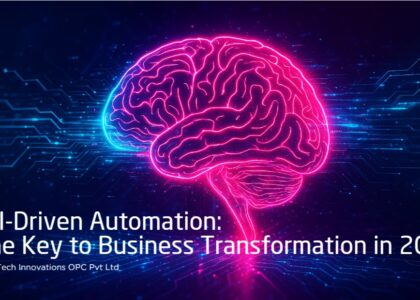As we step into 2025, Big Data continues to be a driving force behind digital transformation, empowering businesses to make smarter decisions, enhance customer experiences, and optimize operations. The volume of global data is projected to reach 181 zettabytes by 2025, making data-driven insights more valuable than ever.
The Evolution of Big Data Analytics
Over the years, Big Data has evolved from basic data collection to real-time predictive analytics and AI-driven decision-making. Businesses now leverage machine learning algorithms, cloud computing, and edge analytics to extract meaningful insights from vast datasets. This transformation is fueling advancements across multiple industries, from healthcare and finance to retail and manufacturing.
Key Trends in Big Data for 2025
Several technological advancements are shaping the future of Big Data:
- AI-Powered Data Processing: Artificial intelligence and deep learning models are enabling businesses to analyze complex datasets with unprecedented accuracy and speed.
- Edge Computing for Real-Time Insights: By processing data closer to the source (IoT devices, smart sensors), companies can reduce latency and enhance real-time decision-making.
- Data Security and Privacy Regulations: With increasing concerns about data breaches and compliance (e.g., GDPR, CCPA), businesses must adopt robust security frameworks to protect sensitive information.
- Data Monetization: Organizations are realizing the financial potential of data, leading to an increase in data-driven business models where insights are packaged and sold as a service.
- AI in Robotics & Automation: Robotics and AI-driven automation are heavily dependent on Big Data for optimizing supply chains, predictive maintenance, and process automation in industries like logistics and healthcare.
How Big Data is Reshaping Industries
Big Data’s impact is felt across multiple sectors:
- Healthcare: AI-powered analytics assist in predictive diagnostics, personalized treatments, and operational efficiency.
- Finance: Fraud detection systems analyze real-time transactions to prevent cyber threats and fraudulent activities.
- Retail & E-commerce: Big Data powers personalized shopping experiences, demand forecasting, and supply chain optimization.
- Manufacturing:Predictive maintenance and smart factories enhance productivity and reduce downtime.
Challenges and Opportunities
While Big Data presents numerous advantages, businesses must also tackle key challenges:
- Data Silos: Many companies struggle to integrate disparate data sources, hindering a unified data strategy.
- Scalability Issues: The rapid growth of data demands high-performance infrastructure for seamless processing.
- Talent Shortage: The demand for data scientists, AI engineers, and data analysts continues to exceed supply.
Despite these challenges, companies that invest in advanced analytics, cloud-based solutions, and AI-driven automation will gain a competitive edge.
The Future of Big Data: What’s Next?
Big Data will continue to redefine business strategies and fuel innovation in 2025 and beyond. At AdlerTech Innovations, we help businesses harness the power of data to drive growth, improve efficiency, and stay ahead of the competition.
Our services include:
- AI & Big Data Solutions – Helping businesses analyze and leverage data effectively.
- Web Development – Creating high-performance, data-driven websites.
- SEO Services – Enhancing visibility through data-driven digital marketing.
- Mobile App Development – Building intelligent, data-powered mobile applications.
- Social Media Management – Optimizing brand presence with data-driven engagement strategies.
Take Your Business to the Next Level
Data is the new currency, and those who harness its power will lead the future. Visit techadler.com to discover how AdlerTech Innovations can transform your business with AI and Big Data solutions.
At AdlerTech Innovations, we don’t just collect data—we turn it into actionable intelligence. Let’s build the future, together.





